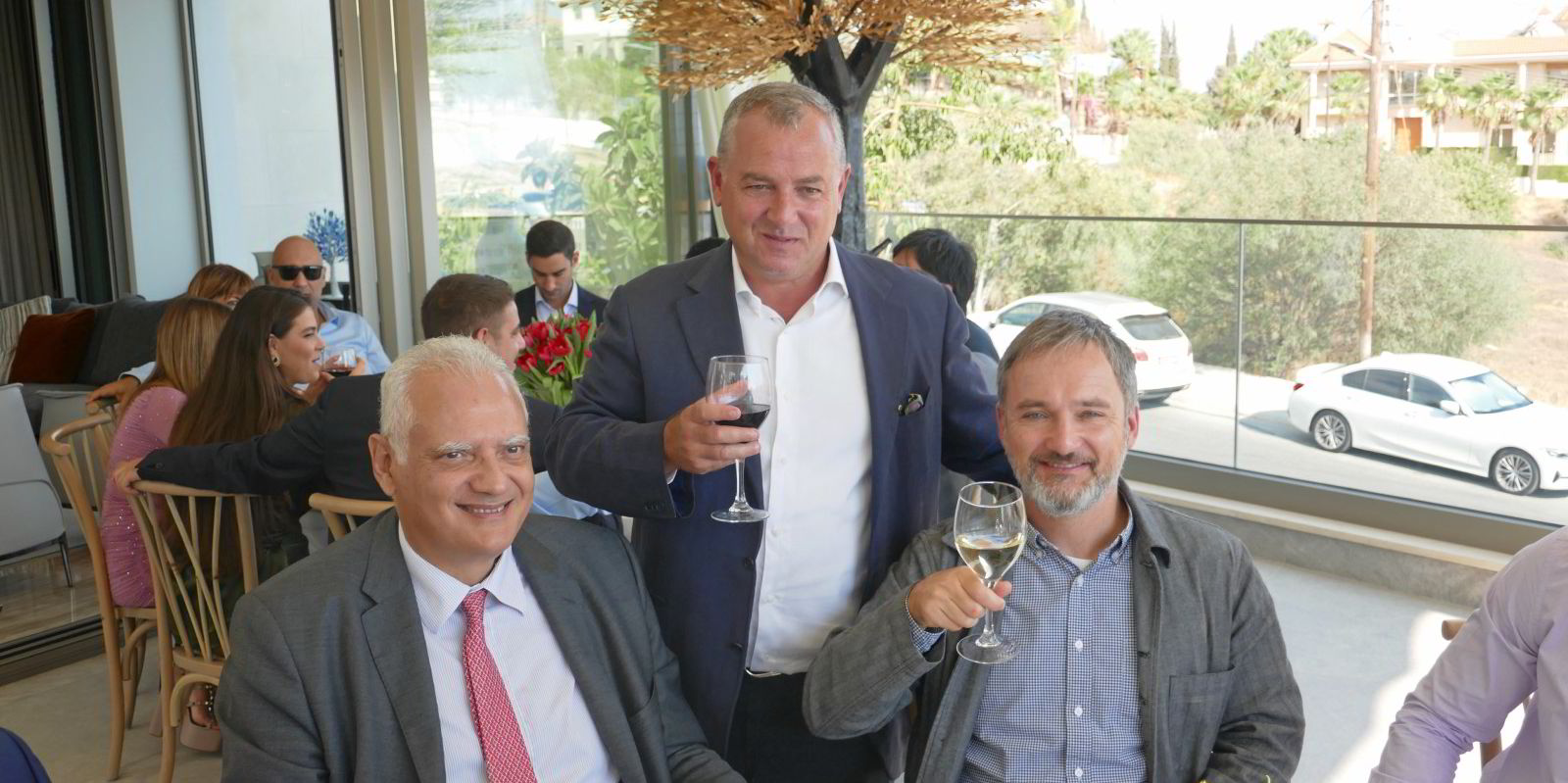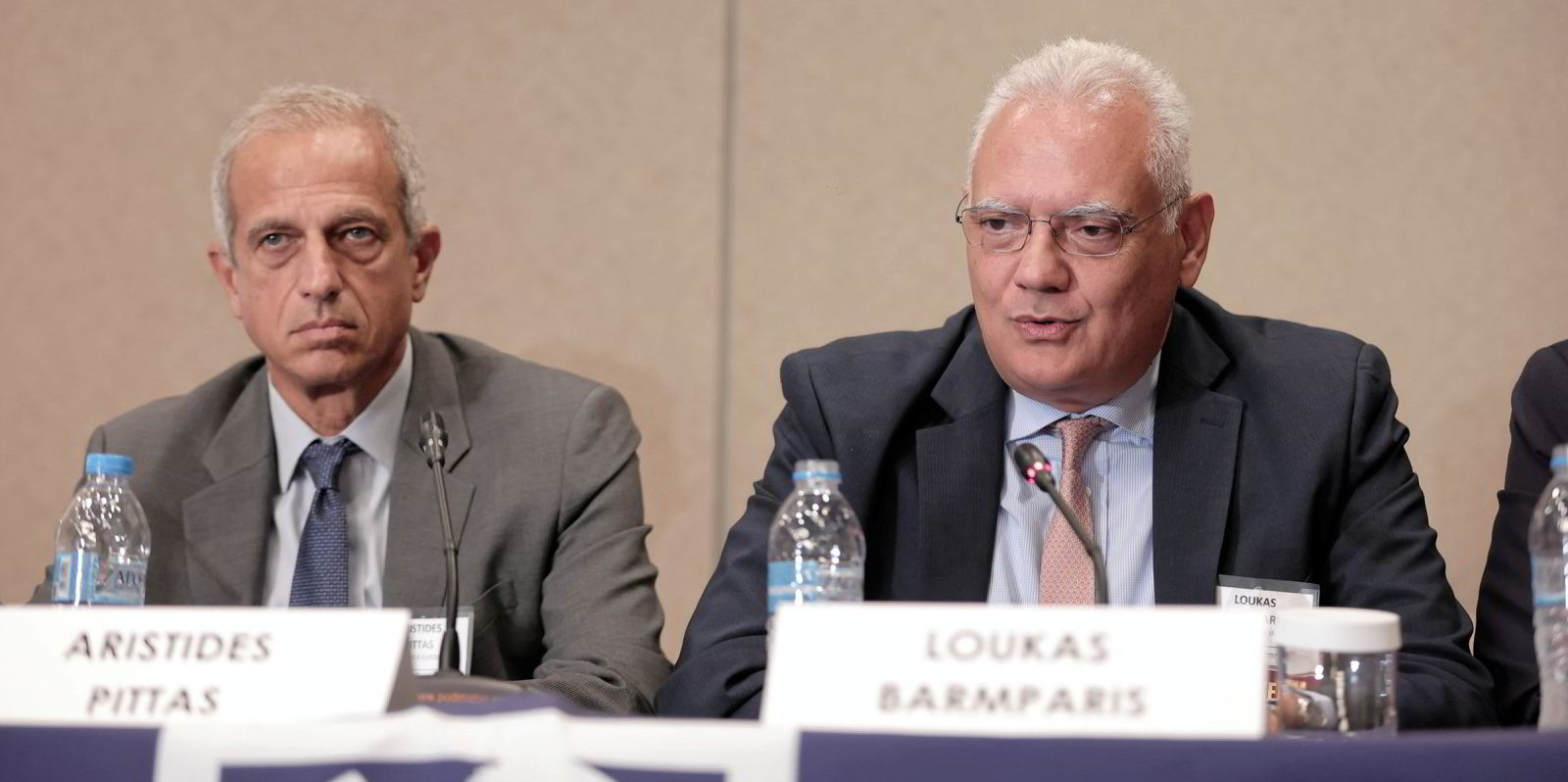Safe Bulkers, a company with one of the biggest newbuilding programmes in the bulker industry, said on Tuesday it plans to spruce up the green credentials on some of the older part of its fleet.
Low-friction paints and energy saving devices will be installed in 20 of the company’s existing fleet of 44 bulkers, the company said in a financial earnings release for the fourth quarter.
“The budget for environmental upgrades in 2023 is approximately $6.9m,” the shipowner said.
Boosted by sizeable profits over the past eight quarters, Polys Hajioannou-led Safe Bulkers has piled up a comfortable liquidity cash buffer of $123.3m at the end of 2022.
This allows the company to finance its ongoing newbuilding programme, which will see the company take delivery of seven kamsarmaxes and one postpanamax by 2025. All compliant with the International Maritime Organization’s Tier III NOx standards and phase 3 of the Energy Efficiency Design Index (EEDI).
Profitability slowed in the fourth quarter, in line with weaker bulker freight markets. Salfe Bulkers reported net income of $34.9m, a drop by almost half compared to the same period of 2021.
Full-year 2022 profit, however, was broadly stable at $172.6m, just 1% down from the previous year.
“Revenues and Ebitda, although still strong, declined from the third quarter and year-ago fourth quarter levels,” company president Loukas Barmparis said.
“We are focused on renewing our fleet through our extensive orderbook, while reducing the footprint of our existing vessels implementing a program of environmental upgrade.”
That upgrade programme includes scrubbers.
In line with previous policy announced to have such systems in half its fleet, Safe Bulkers said on Tuesday it will install the devices on three capesizes in 2023 and another in 2024.
That will bring the total number of its scrubber-installed vessels to 23 — well ahead of the introduction by the IMO of an Emissions Control Area (ECA) in the Mediterranean.
As for its chartering policy, the company said it will continue to employ vessels on both period time charters and the spot market, “according to our assessment of market conditions”.
As of 10 February, it had 12 vessels trading in the spot market, in periods of up to three months.
All its eight capesizes are in long-term period business that offers protection from the volatile earnings nature of this particular vessel class.
“The average remaining charter duration of our capesize-class vessels was 2.8 years and the average daily charter hire was $19,849, resulting in a contracted revenue of approximately $161.7m net of commissions, excluding the additional compensation related to the use of scrubbers,“ Safe Bulkers said.
The company held its dividend at $0.05 per share — the same level it has been paying after resuming dividend distributions five quarters ago.





